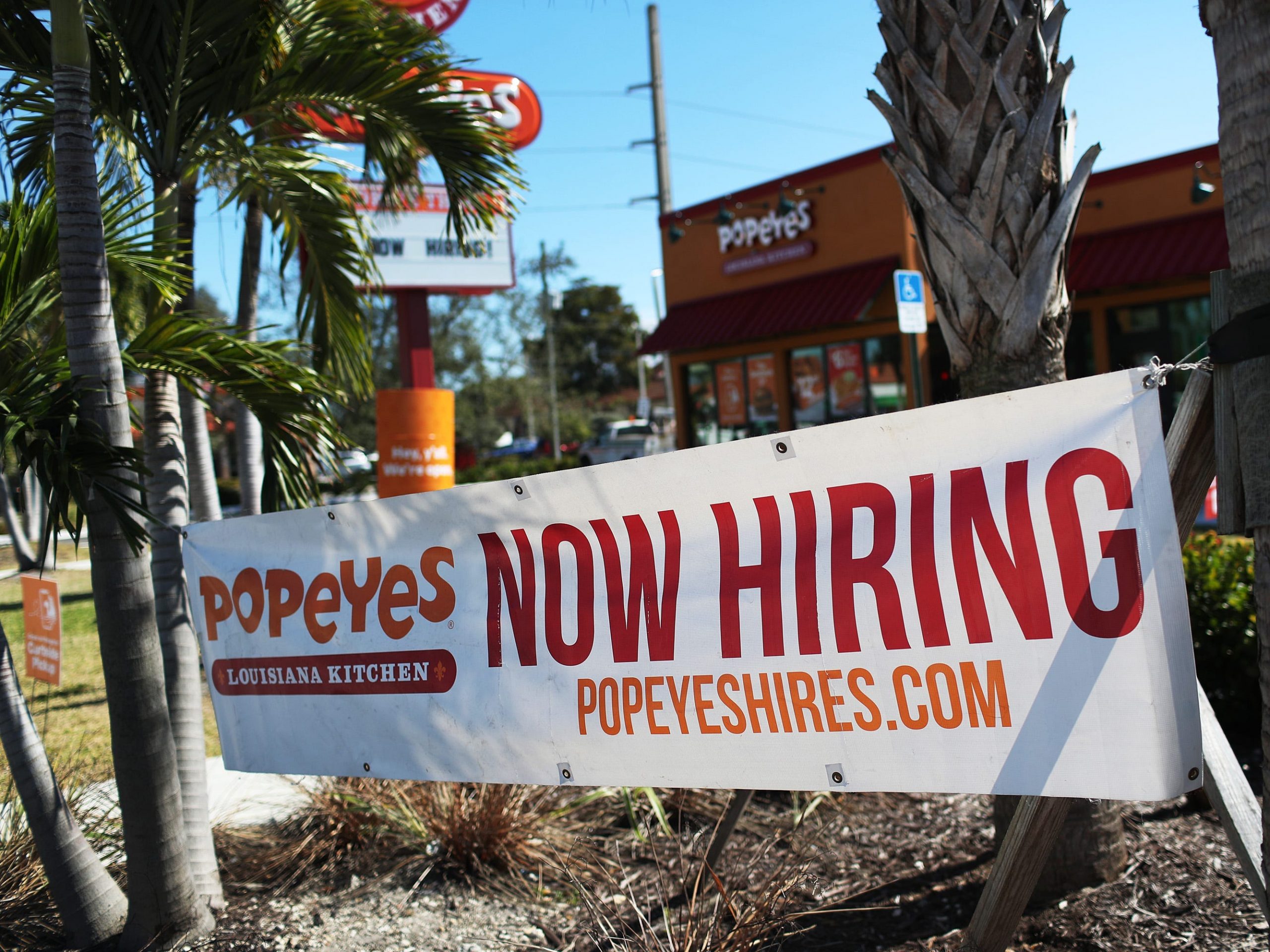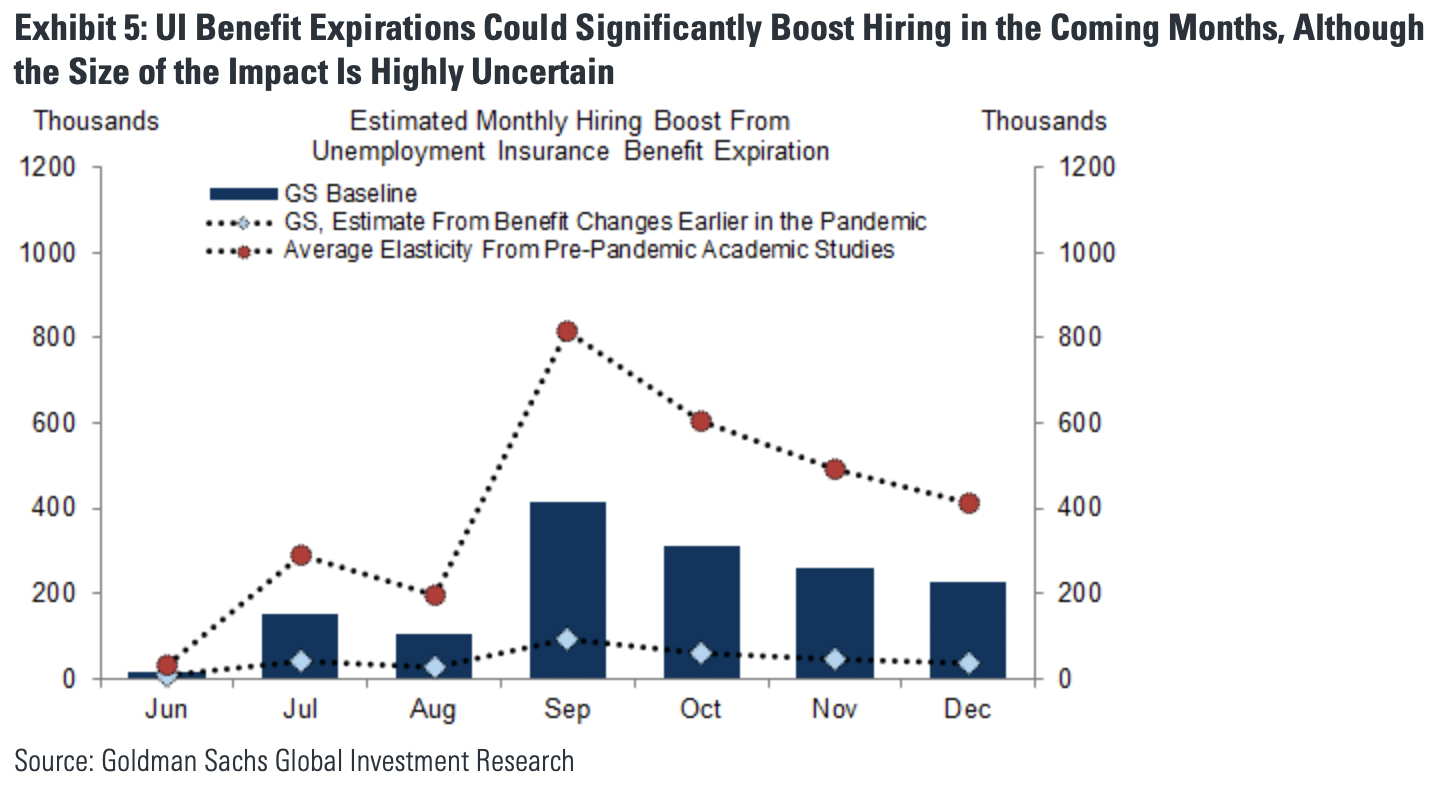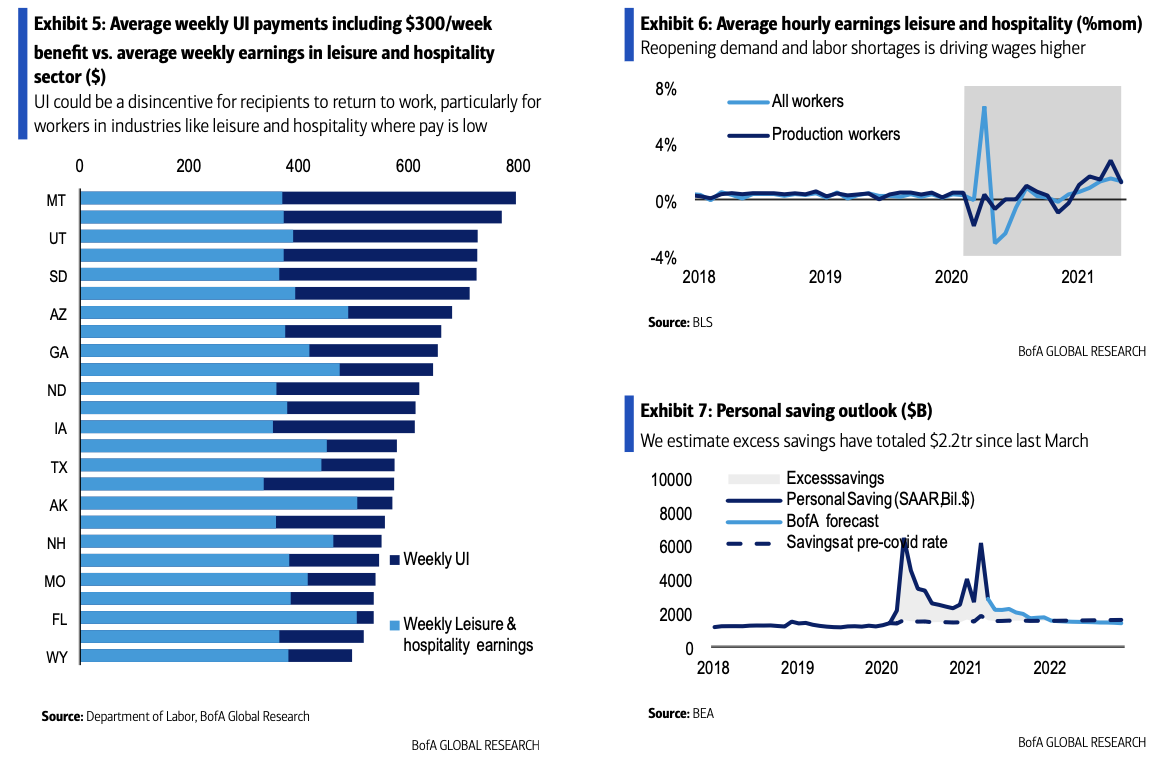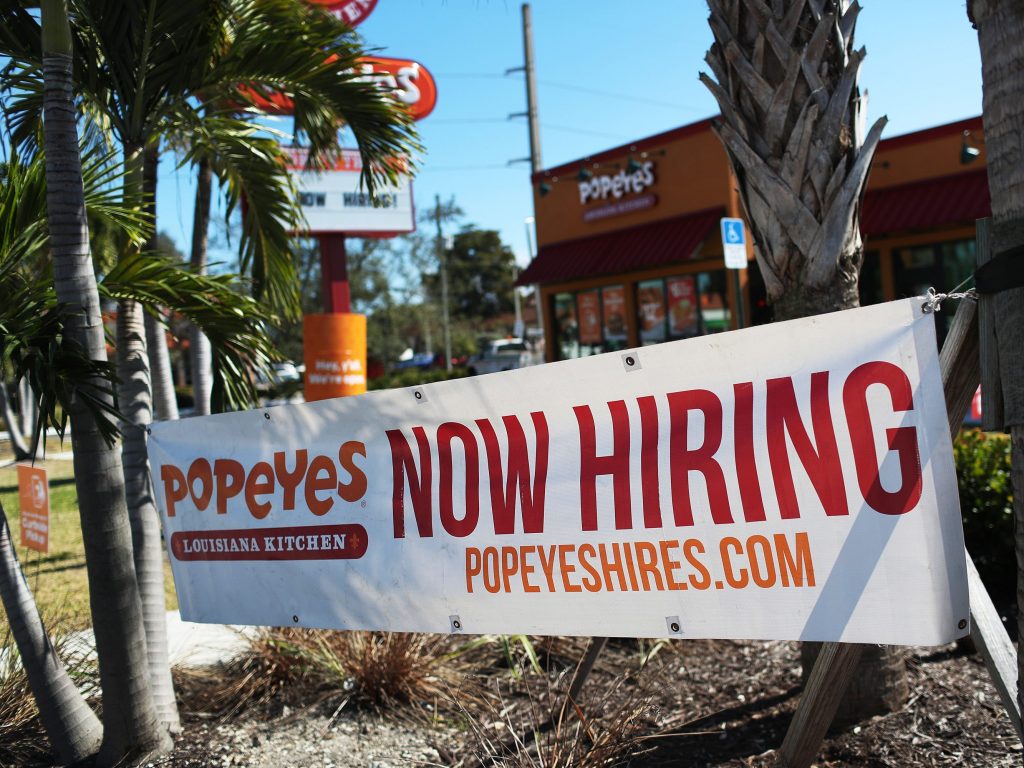
Joe Raedle/Getty Images
- 25 GOP-led states are ending $300 weekly unemployment benefits early to get people back to work.
- Goldman Sachs said it will boost hiring by over 150,000 in July and 400,000 in September.
- BofA found the benefits are higher than average leisure and hospitality wages in those states.
- See more stories on Insider's business page.
Following an April jobs report that fell significantly short of expectations, 25 GOP-led states announced they would be ending unemployment benefits early to incentivize people to get back to work. Both Bank of America and Goldman Sachs partially agreed that doing so will ease the labor shortage, with Goldman projecting a resultant spur to hiring in the coming months.
Goldman's Joseph Briggs wrote in a Friday note that the 25 states opting out of President Joe Biden's $300 weekly unemployment benefits will boost job growth by 150,000 in July and over 400,000 in September.
Briggs cautioned that these job gains estimates are "highly uncertain" and "the peak monthly growth impact could exceed 800k if workers are as sensitive to generous benefits as prior academic studies estimate, or be as low as 100k if benefit reductions only modestly increase workers' willingness to return to work."
Briggs noted that the states ending the benefits early account for only 29% of total outstanding job losses since the start of the pandemic, partly because those states imposed fewer economic restrictions during the past year, and the majority of outstanding job losses are in the states that haven't changed reemployment incentives.

Goldman Sachs Global Investment Research
Given that the majority of job losses are in states that are not ending the benefits early, labor supply headwinds will stay in place until September, Briggs said, and since the earliest states aren't ending benefits until after the June employment report reference period, the effect on official employment measures won't be fully visible until the July report.
Goldman continues to expect the unemployment rate to fall to 4% by the end of the year.
Bank of America Research said states are ending unemployment benefits early in large part because the benefits are higher than leisure and hospitality wages.
BofA economist Stephen Juneau wrote in a Friday note that the benefits exceed the average weekly earnings for leisure and hospitality workers in all 25 of the states that are moving to cancel them, while as of April 2021, employment in that sector is down about 1 million from February 2020.
"Therefore, opting out of the $300/week added benefit could be enough to nudge unemployed persons back into the work force, alleviating some of the labor supply shortages, and helping to spur job growth over the coming months," Juneau wrote.

Department of Labor, Bank of America Global Research.
Juneau also cited the growth in leisure and hospitality wages over the past few months and said that if those wages continue to rise, the incentive to stay on unemployment insurance would be reduced.
Insider previously reported that companies like Target, Starbucks, and McDonald's have raised their minimum wages to help remedy the labor shortage and attract more workers to get back into the labor force, given that holding out for higher wages, along with pandemic health concerns, have been discouraging the return to work.
But while Juneau said ending the benefits early will help with hiring, Insider reported last week that the cuts have not gone into effect yet, and payrolls still sharply increased in May, suggesting the benefits are not as big a disincentive as Republicans argue.
Democrats have also disagreed that the benefits are a disincentive, even calling for continued unemployment benefits tied to economic activity beyond the pandemic. Vermont Sen. Bernie Sanders wrote on Twitter in April that we "don't need to end $300 a week in emergency unemployment benefits that workers desperately need."
But continued unemployment benefits are unlikely. Biden said in a speech last week that while the benefits have been effective thus far, "it makes sense" for them to expire in September.
"A temporary boost in unemployment benefits that we enacted helped people who lost their jobs through no fault of their own, and who still may be in the process of getting vaccinated," the president said in brief remarks following the May jobs report. "But it's going to expire in 90 days - it makes sense it expires in 90 days."
